Question And Answer
Publications
Articles, publications, books, tools and multimedia features from the U.S. Institute of Peace provide the latest news, analysis, research findings, practitioner guides and reports, all related to the conflict zones and issues that are at the center of the Institute’s work to prevent and reduce violent conflict.
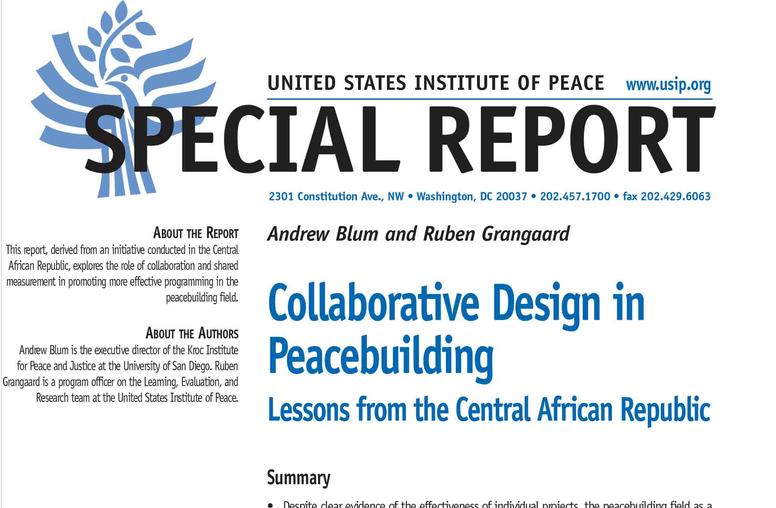
Collaborative Design in Peacebuilding
Despite clear evidence of the effectiveness of individual peacebuilding efforts, the field as a whole often struggles to have a meaningful collective impact on broader conflict dynamics. This report, drawing on a pilot initiative in the Central African Republic—IMPACT-CAR—to develop a shared measurement and reporting system aimed at improving collaboration and shared learning across peacebuilding implementers, reflects on the results, successes, and challenges of the initiative to offer a road map for future initiatives focused on collective impact in the peacebuilding field.
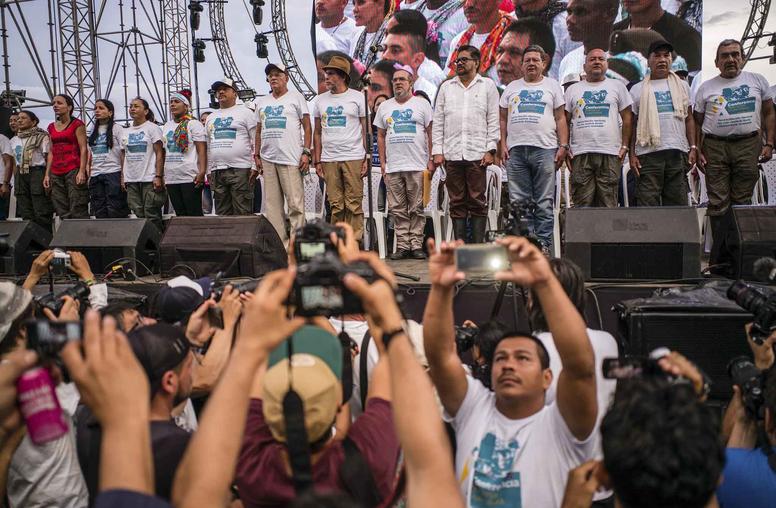
Will Colombia's 2018 Elections Imperil Peace?
The April 9 arrest and extradition request of former senior Revolutionary Armed Forces of Colombia (FARC) commander and peace negotiator Jesús Santrich highlights the complex challenges Colombia faces in the implementation of the historic November 2016 peace agreement with the FARC. Over a year and a half since the signing of the agreement, Colombia finds itself in one of the most critical moments in its efforts to definitively put to rest over five decades of armed conflict that has left more than 8.5 million victims in its wake. Frustrations surrounding the mixed results in the implementation of the peace agreement are exacerbated by the natural uncertainty over the upcoming May 27 presidential elections and its policy impact.
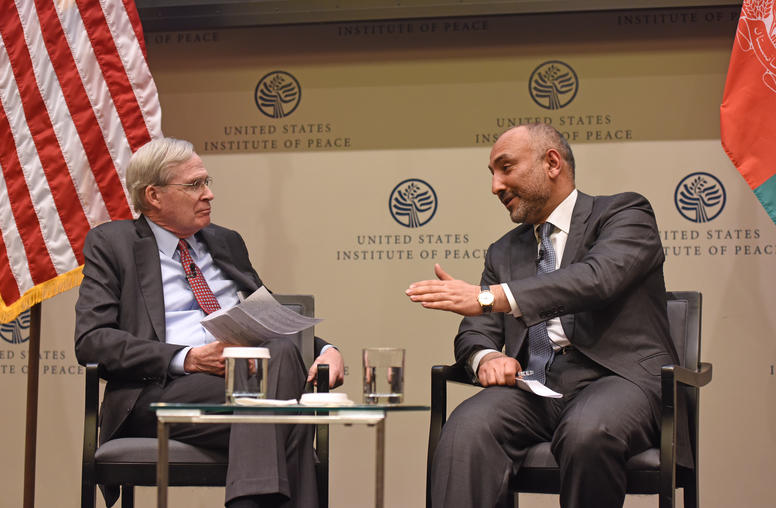
Making Peace Among Afghans: Kabul's View
Afghanistan’s government is focused on building consensus—both domestically and among states in the region—to support a peace process with the Taliban insurgency, according to the Afghan national security advisor, Hanif Atmar. The main challenges, he said, include continued support from Pakistan for the Taliban and an incremental recent Russian move toward immediate cooperation with the Taliban even without a peace process.

Dr. Kathleen Kuehnast on International Women’s Month
For International Women’s Month, Kathleen Kuehnast underscores the importance of women’s contribution to peace and security. Dr. Kuehnast argues that the new millennium, whether through U.N. Security Council Resolution 1325 or less formal engagement via social media, has empowered women to take a greater role in peace building.
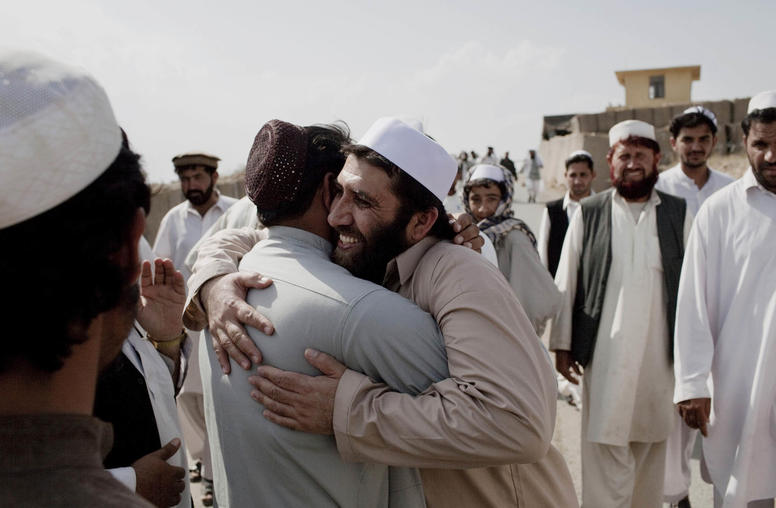
For an Afghan Peace, Work with China
Defense Secretary James Mattis said in Kabul March 13 that, for U.S. policy in Afghanistan, “victory will be a political reconciliation” that includes the Taliban. Mattis’ statement sustains the public focus on an Afghan peace process following separate proposals for negotiations last month by the Taliban and Afghan President Ashraf Ghani. If the United States is to maximize the chances of ending this 16-year war, it needs urgently to pull China into the process, according to David Rank, who headed both the U.S. Embassy in Beijing and the State Department’s Office of Afghanistan Affairs during a 27-year diplomatic career.

Johnny Walsh on U.S. Strategy in Afghanistan
Secretary of Defense Mattis’s visit to Kabul, Afghanistan, follows a spike in activity from all parties proffering peace talks. Johnny Walsh shares his thoughts about the U.S. strategy to bolster the Afghan government’s position to enter into peace talks with the Taliban.
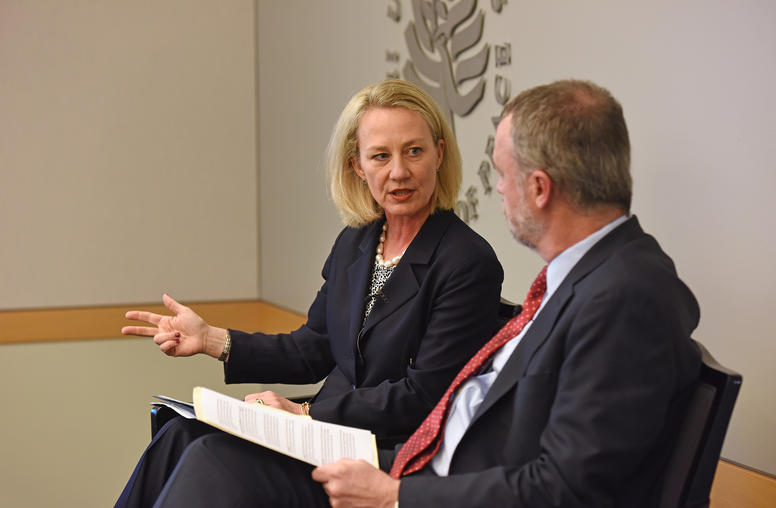
U.S. Presses Taliban to Accept Afghan Peace Talks
The senior U.S. diplomat for South and Central Asia, Ambassador Alice Wells, urged Afghanistan’s Taliban to take up last week’s offer by President Ashraf Ghani to hold direct peace negotiations. “It is a positive sign” that the Taliban have not rejected Ghani’s proposal, Wells said—and a planned regional conference in Tashkent this month should reinforce international pressure for the insurgent movement’s acceptance of peace talks.

Lucy Kurtzer-Ellenbogen on Prime Minister Netanyahu's Visit to the U.S.
This week in Washington, Prime Minister Netanyahu successfully shifted the optics from mounting domestic pressure. Lucy Kurtzer-Ellenbogen shares her analysis about Netanyahu’s warm reception at the AIPAC conference and his White House meeting focused on Iran. The conversation continues with Kurtzer-Ellenbogen explaining the latest hurdles for Middle East Peace and the anticipation for the Trump administration’s Middle East Peace Plan.
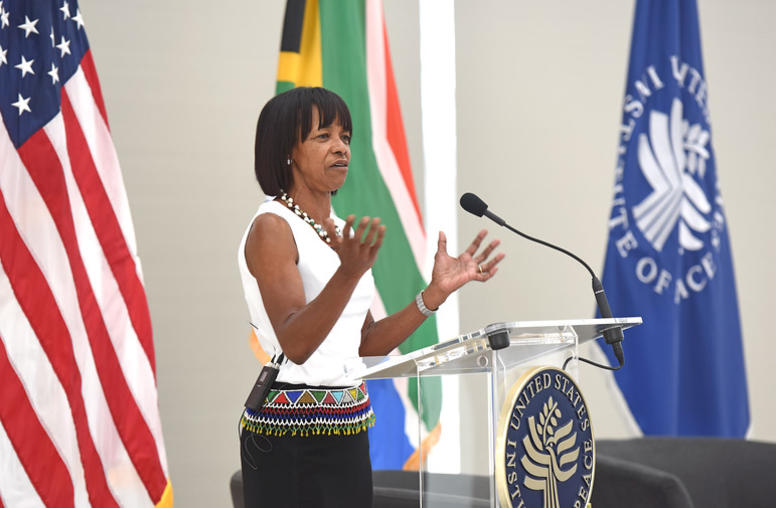
At 100, Nelson Mandela's Meaning for 'A Troubled World'
One hundred years after Nelson Mandela’s birth, his example calls nations and political elites to examine their failings in providing justice and hope to people worldwide, said Cheryl Carolus, Mandela’s colleague in the movement that toppled South Africa’s apartheid regime. Amid warfare across the globe, and alienated voters roiling the politics of democracies, “maybe it is fortuitous that we are confronted with these challenges in the centenary year of Nelson Mandela,” Carolus said, delivering USIP’s inaugural Nelson Mandela Lecture. “Maybe we will remind ourselves that peace can only reign and endure if there is justice and equality.”
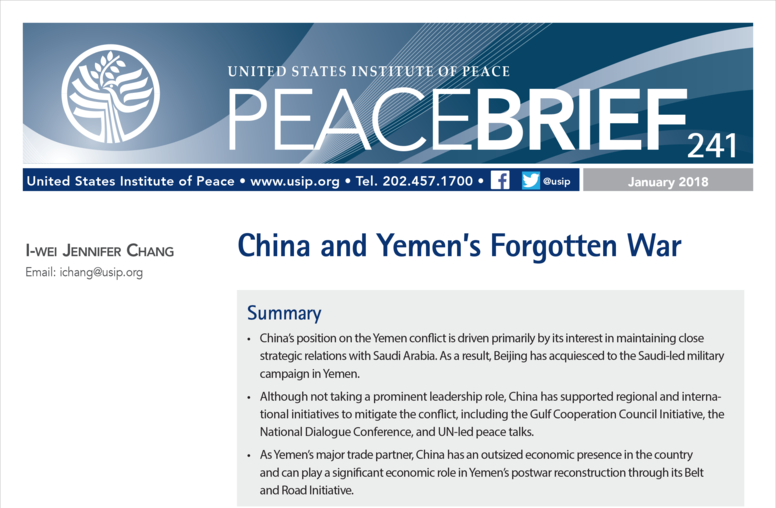
China and Yemen’s Forgotten War
Yemen is facing an acute humanitarian crisis after nearly three years of civil war, with more than 10,000 deaths and three-quarters of the country’s population in dire need of humanitarian assistance. Although eschewing a leadership role, China has supported regional and international efforts to mitigate the...